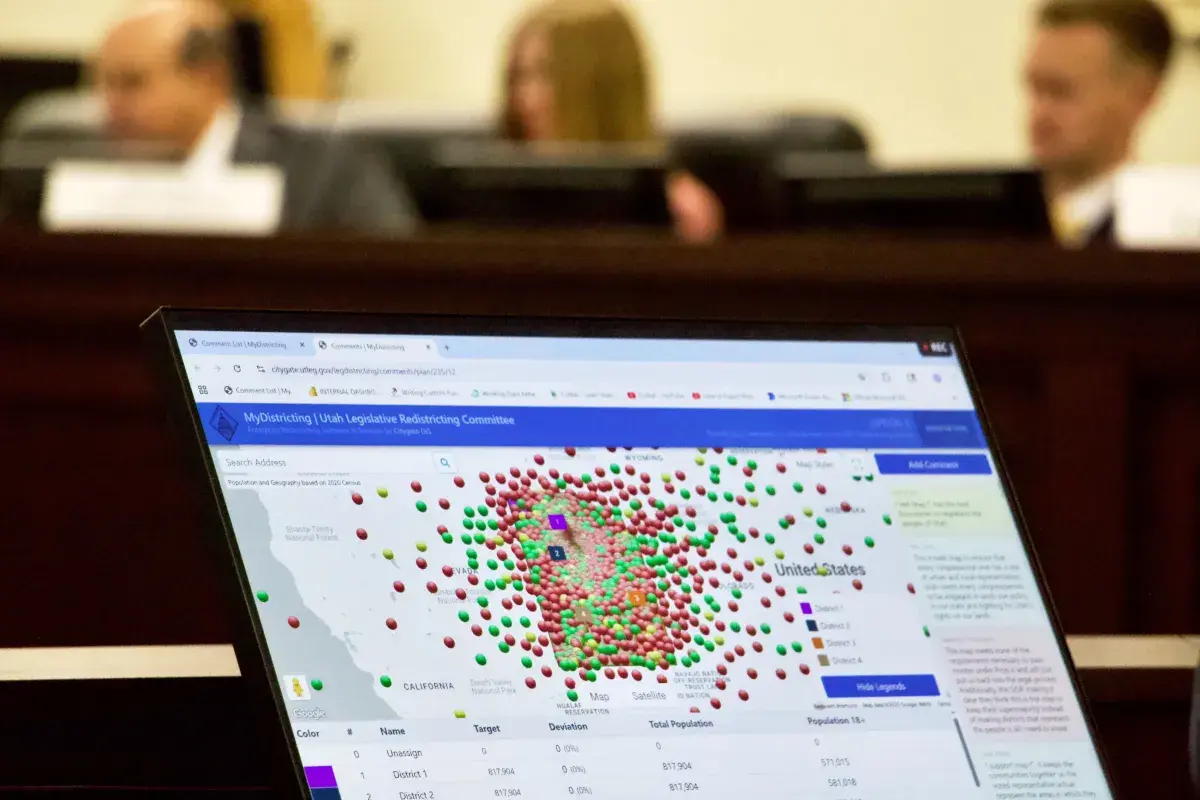Copyright Newsweek

A Utah Republican lawmaker has introduced a resolution to impeach a state judge who struck down a GOP-drawn congressional map in favor of one that would make at least one of the state's four congressional seats—currently held by Republicans—more competitive for the Democrats. "I have opened a bill to file articles of impeachment against Judge Gibson for gross abuse of power, violating the separation of powers, and failing to uphold her oath of office to the Utah Constitution," state representative Matt MacPherson wrote on X. Newsweek has contacted MacPherson and Judge Gibson for comment via email. Why It Matters The impeachment push highlights the growing clash between the legislative and judicial branches in Utah and reflects a broader national trend of partisan battles over redistricting. The political showdown in Utah reflects a wider national struggle over redistricting, as both parties fight for control of the U.S. House ahead of the 2026 midterms—elections that will define the latter half of Donald Trump’s second term. Judge Gibson’s decision marks the second major victory for Democrats in the nationwide redistricting battles, coming just one week after California voters backed a ballot measure projected to give Democrats as many as five additional congressional seats. What To Know In a ruling issued late Monday, Judge Dianna Gibson struck down Utah’s GOP-drawn congressional map, finding that it violated Proposition 4—a 2018 voter-approved initiative that established an independent redistricting commission aimed at preventing partisan gerrymandering. Gibson said the map “fails to abide by and conform with” Proposition 4, blocking it from being used in the 2026 elections. Instead, she ordered the adoption of an alternative plan submitted by the plaintiffs, referred to as 'Map 1'. The lawsuit—filed by the League of Women Voters of Utah and Mormon Women for Ethical Government—challenged the GOP-controlled Legislature’s 2021 redistricting process. That map had already been voided by Gibson in August, when she ruled lawmakers acted unconstitutionally by dismantling Proposition 4. Democrats in the state legislature welcomed the new decision, calling it “a win for every Utahn” and expressing “a deep sense of hope and relief,” according to local media. However, Republicans were less impressed. Utah State Senator Daniel McCay called Gibson’s decision “biased.” “I’m not sure how months of analysis produced an opinion so biased absent a predetermined outcome,” McCay said on X. Meanwhile, MacPherson said he will file Articles of Impeachment against Judge Dianna Gibson. However, the impeachment is unlikely to succeed. State law allows the removal of judges only for serious misconduct, corruption, or inability to perform their duties—not for issuing an unpopular ruling. To remove a judge in Utah, the House must approve impeachment by a two-thirds vote, and the Senate must convict by the same margin. Because there is no evidence of corruption or personal wrongdoing, and given the high bar required for impeachment, it is unlikely that any effort to remove Gibson will succeed. University of Utah political science professor Matthew Burbank pushed back against claims that Judge Dianna Gibson is an “activist judge,” saying such characterizations misrepresent Utah’s rigorous, merit-based system for appointing judges. “[The decision] is not a sign of an activist judge,” Burbank said in a university press release. “That’s the sign of a judge essentially saying, well based on the law in front of me, here’s the decision I have made. To call her an activist at this point is really just political pandering,” he added. Burbank explained that Utah’s judicial selection process leaves little room for partisanship. Candidates are first vetted by the Judicial Nominating Commission based on professional merit before being forwarded to the governor. The governor’s nominee must then be approved by a majority vote in the State Senate. “Not only did she become a judge through the regular process: she applied, [was] selected by the governor, approved by the Senate—all of which are controlled by Republicans and all of whom are not going to pick someone who’s an activist,” Burbank said. Normally, congressional district boundaries in Utah are redrawn once every ten years after new U.S. Census data is released. The existing maps, approved by Governor Spencer Cox in 2021, were expected to remain in place until the next redistricting cycle in 2031. However, Judge Dianna Gibson’s latest ruling upended that timeline, writing that “Utah has an opportunity to be different.” In a post on X, Utah Republican Lieutenant Governor Deidre Henderson said she will comply with Judge Gibson's ruling. "I will comply with Judge Gibson’s order and immediately begin the process of implementing Plaintiff’s Map 1 unless otherwise ordered by an appeals court," she wrote. What Happens Next The decision is likely to shake up Utah politics and poses a setback for Republicans, who had anticipated an easy victory across all congressional districts. Nationally, Democrats need to flip just three seats to reclaim control of the U.S. House of Representatives.



